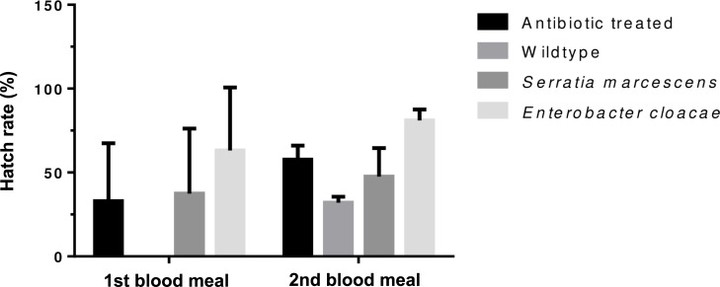Mosquito midgut Enterobacter cloacae and Serratia marcescens affect the fitness of adult female Anopheles gambiae s.l

Abstract
Some bacteria species found in the mosquito midgut have demonstrated their role in interrupting the development of Plasmodium within the midgut of the Anopheles mosquito and have been identified as potential candidates for novel bacteria-mediated disease control. However, to use these bacteria successfully in biocontrol mechanisms their effect on the fitness of the vector into which they have been introduced has to be evaluated. This study investigated the effect of two such bacteria candidates, Enterobacter cloacae and Serratia marcescens, on Anopheles gambiae s.l. fitness. Pupae and larvae of Anopheles gambiae s.l. mosquitoes were collected by dipping method and reared to adults. The effect of these bacteria on mosquito fitness was assessed by reintroducing isolates of each bacteria separately into antibiotic-treated female adult mosquitoes through sugar meal. Wild type (non-antibiotic-treated) mosquitoes and those antibiotic-treated with no bacteria reintroduction were used as controls. The mosquitoes were monitored on longevity/survival, fecundity, hatch rate, and larval survival. The antibiotic-treated adult mosquitoes had reduced life span with median survival of 14 days while the bacteria-reintroduced groups and the wild type survived to day 22 (p< 0.0001). Treatment with Enterobacter and Serratia did not affect the average egg deposition (p>0.05) but they affected hatch rates positively (p = 0.008). There was, however, some evidence that suggests Enterobacter could have a positive effect on larval development (p < 0.0001). With no observed negative effect on survival/longevity of Anopheles gambiae, introducing E. cloacae and S. marcescens in future bacteria-associated control strategies is unlikely to result in mosquitoes that will be outlived by the wild population. This, however, requires evaluations under field conditions.